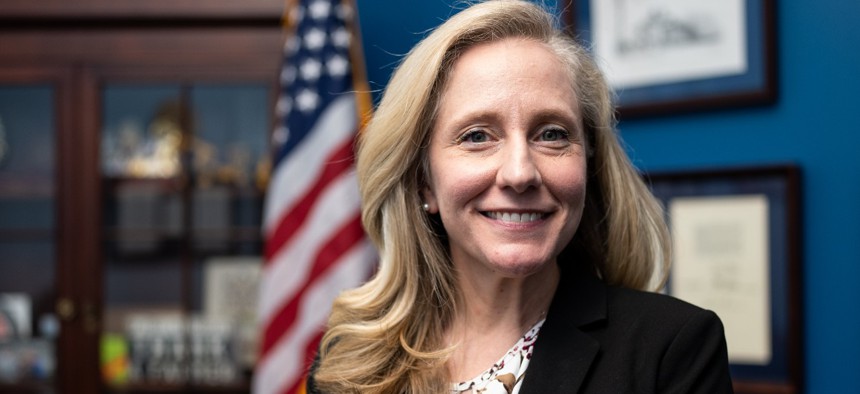
Rep. Abigail Spanberger, D-Va., is one of the lawmakers who introduced the bill. Bill Clark/CQ-Roll Call, Inc via Getty Images
Don't Pay Members of Congress if There’s a Default or Shutdown, New Bill Says
This bipartisan bill is a “no brainer,” said one of the co-sponsors.
Members of Congress wouldn’t get paid if the debt limit is reached or there is a government shutdown, under a new bill introduced by a bipartisan pair of lawmakers.
The bill, introduced last week, comes as there have been on and off talks between House Republicans and the White House on how to deal with the impending debt default. Also, the top Democrat on the House Appropriations Committee warned in January of a possible government shutdown in the next year because of demands from some Republicans.
This is “a bipartisan bill that would not only incentivize cooperation during moments of looming default, but also pressure elected officials to keep the doors of our government open, the livelihoods of our federal employees protected, and the American people secure,” said Rep. Abigail Spanberger, D-Va., who introduced the bill along with Rep. Brian Fitzpatrick, R-Pa.
Under this bill, congressional payroll administrators would have to withhold paychecks from lawmakers for every day that the debt ceiling isn’t lifted after a default or every day after the start of a federal government shutdown. In accordance with the 27th Amendment of the U.S. Constitution, congressional payroll administrators would release the payments at the end of this session of Congress. Similar legislation has been introduced in the past to prevent government shutdowns.
Fitzpatrick said this bill is a “no brainer” as “members of Congress promise to fight for their constituents in Washington, and should not be paid a taxpayer-funded salary if they cannot deliver on that promise.”
So far, there is not a companion version in the Senate.
NEXT STORY: Talks on a Spending and Debt Deal Come to a Halt







